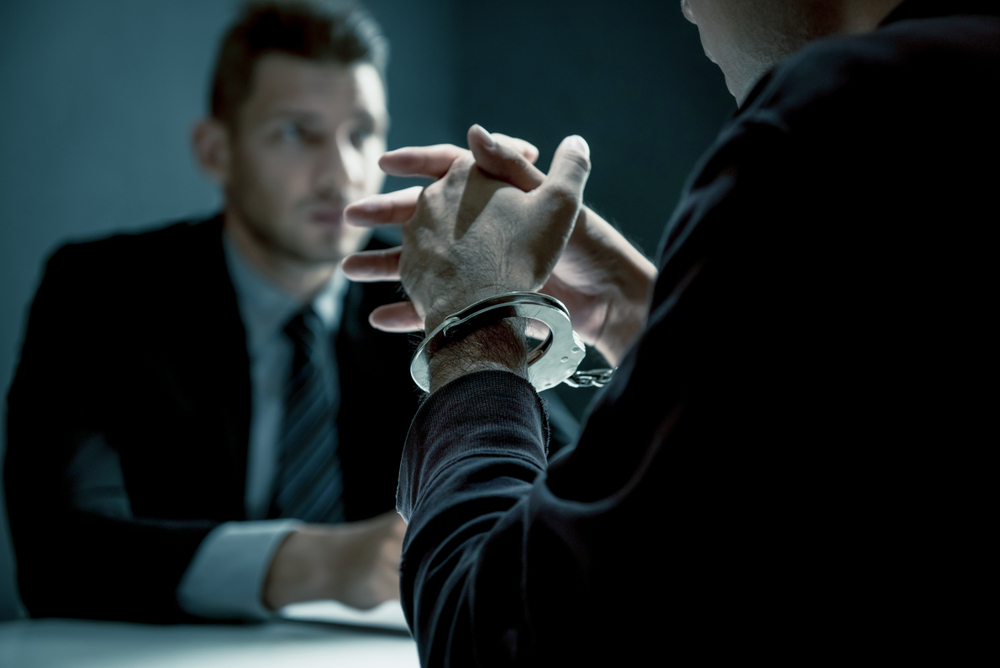
Although it is not necessary to have legal representation present during a police interview, it is highly advisable to do so. Having a criminal defense lawyer in Dallas can help protect your rights and ensure you don’t say anything that could potentially incriminate you.
According to the Fifth Amendment of the U.S. Constitution, you have the right to remain silent and to have an attorney, often referred to as “pleading the fifth.” In general, it’s advisable to exercise both rights if you are being questioned in a criminal investigation. Doing so could protect your rights and even prevent the state from ever filing charges.
You Should Consider Getting a Lawyer for a Police Interview
It doesn’t matter whether you’re truly innocent of an alleged crime or not; you want to have a lawyer during a police interview. No matter how courteous law enforcement officers may seem, their goal is to gather evidence that allows a prosecutor to convict you later. Furthermore, as your Miranda rights suggest, anything you say can and will be used against you at trial.
In general, a defense attorney can help guide you through the legal process and advise you on how to proceed with an interview. By forgoing legal representation, you risk:
- Waiving your legal rights and allowing police to obtain self-incriminating statements or admissions that can be used against you
- Losing out on essential legal advice and guidance on how to respond to law enforcement’s questions
- Misunderstanding the legal process, including your rights, the charges you may face, or the potential consequences of your actions
- Exposing yourself to police tactics, such as coercion, intimidation, or overall unfair treatment
- Experiencing constitutional rights violations, which may be difficult to prove later
Law enforcement officials sometimes push the envelope in terms of what they can and can’t do. With a lawyer, you can rest assured that someone’s protecting your rights and advocating for your future.
Remember: you have the right to an attorney at any point during questioning or later if you’re charged with a crime. Securing legal help is not an admission of guilt.
Do I Need a Lawyer if I’m Facing a Non-Serious Criminal Charge?
Here’s the thing: there’s no such thing as a non-serious criminal charge. Even a Class C misdemeanor (which can result in a $500 fine) could have serious implications on your life, future, and professional licenses.
What’s more, you may not 100 percent understand the implications of a crime during the police’s questioning. What may initially seem like a fact-finding interview could turn into a heated interrogation, making you feel as though you have no choice but to comply.
Without a criminal defense attorney, law enforcement could:
- Ask “loaded” questions (such as assuming facts not yet established) to encourage inaccurate or coerced responses
- Use inflammatory, discriminatory, derogatory, or offensive language
- Ask questions or make statements that attack your character or credibility
- Inquire into any prior arrests or your criminal history if it is not relevant to the current investigation
- Assume you are guilty or an accomplice before facts are established
- Use coercion, such as threats, intimidation, or undue pressure, to elicit responses
- Stereotype you based on your characteristics, such as race, gender, or appearance
- Provide false information, such as saying another person has implicated you in the crime
In general, anything you say to the police can have unwanted consequences, regardless of the magnitude of the crime in question and even if you are not involved. To err on the side of caution, it’s a good idea to have a criminal defense lawyer by your side if you’re facing a run-in with the law––no matter how minor.
Getting a Court-Appointed Lawyer May Not Be in Your Best Interest
There are some potential drawbacks to having the court assign you an attorney. While public defenders serve a valuable role in our society, one might not be in the best position to defend you. That’s because these professionals often deal with:
- Heavy caseloads. Some public defenders juggle multiple high-stakes cases at once, complicating the individualized attention they can give to each one.
- Pressure to have a client plead guilty. Because of their caseload, a public defender may encourage you to plead guilty or accept an unfair plea deal, so they can move onto the next client.
- Limited resources. Public defenders often don’t have the resources of an established law firm, limiting the defenses they can provide clients.
- Inexperience. Many attorneys graduate law school and become public defenders before they are well-established in the legal community.
You want a criminal defense lawyer who has the time and resources to protect you not just during a police interview, but at trial, too.
Do the Police Need a Warrant to Interview Me?
The short answer is no. Unless you’re in police custody (meaning you’ve been arrested and read your Miranda rights), police interviews are voluntary. When you hire a lawyer, they can explain whether it’s in your best interest to comply. They may recommend answering law enforcement’s questions if:
- You could provide valuable information regarding a serious crime.
- Complying could paint your character in a good light.
- Refusing to cooperate would make you seem suspicious.
- You can clear things up with a simple explanation.
- Giving information about a crime could give you immunity or pave the way for a plea deal.

Get Help from the Law Offices of Randall B. Isenberg Today
It’s important to understand your legal rights and make an informed decision about having a lawyer present during a police interview. Keep in mind that each individual case is unique, and in the face of a possible arrest, you want experienced legal counsel.
At the Law Offices of Randall B. Isenberg, our team of criminal defense attorneys provides personalized attention, working to secure the best possible outcome for your case. Contact us today to begin a consultation and discuss your legal options.














